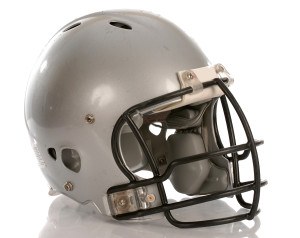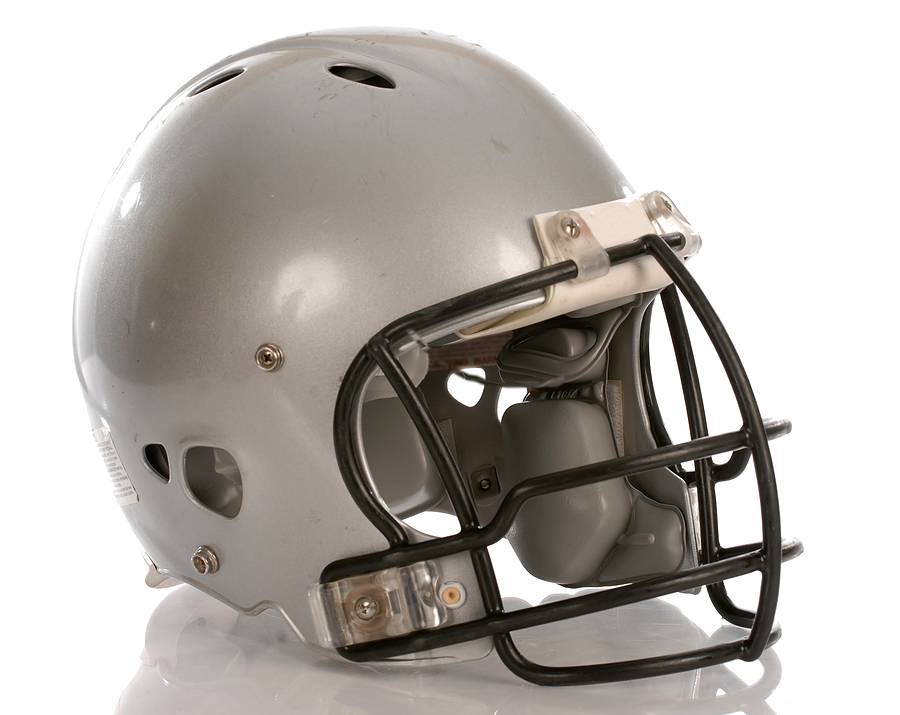 Senators and medical witnesses Wednesday criticized some sports equipment makers for touting products as reducing concussions, saying they were misleading consumers because the claims are not justified by scientific evidence.
Senators and medical witnesses Wednesday criticized some sports equipment makers for touting products as reducing concussions, saying they were misleading consumers because the claims are not justified by scientific evidence.
“Now that athletes, coaches and parents have a better understanding of concussions, some sports equipment makers appear to be a taking advantage,” Sen. Tom Udall, a New Mexico Democrat, said at a Senate Commerce, Science and Transportation Committee hearing. “There are a number of so-called, quote, anti-concussion and concussion-reducing devices on the market. … We need to make sure advertisers play by the rules.”
He singled out several companies, including Riddell, which claims its Revolution helmet helps reduce concussions, and Brain-Pad, which blares on packaging blown up for the hearing, “Reduces Risk of CONCUSSIONS!” from lower jaw impacts. The packaging says its equipment creates “BRAIN SAFETY SPACE!”
Dr. Ann McKee, a professor of neurology and pathology at Boston University, said that there’s no evidence that mouth guards reduce the rate or severity of concussions.
“So I would have great objection to this claim,” she said.
Dr. Jeffrey Kutcher, an assistant professor of neurology at the University of Michigan and director of Michigan Neurosport, a clinic that diagnoses and treats concussions for athletes, testified that no piece of equipment can significantly prevent concussions.
“The potential harm that I see being caused by products that claim to prevent concussion when they do not is far more than simply the financial harm of paying more for something that isn’t likely to work as claimed,” he said. “It is the harm that comes from having a false sense of security, from not understanding how the injury occurs and what can actually be done to prevent it.”
Udall has asked the Federal Trade Commission to investigate what he calls “misleading safety claims and deceptive practices” in the marketing of football helmets. He has also introduced legislation giving the industry nine months to come up with new standards that address concussion risks and the specific needs of young players. The bill would make it a crime to sell any sporting equipment that makes false or misleading claims about safety benefits.
In a statement Wednesday night, Riddell said that advances in technology have improved the ability of football helmets to reduce the incidence of concussions, although no helmet available today can claim to prevent concussions. But the company did point to a University of Pittsburgh Medical Center which found that Riddell Revolution reduced concussion risk by 31 percent.
“We are confident that this research data is reliable and accurate,” Riddell said.
However, a co-author of the study, the UPMC neurosurgeon Joe Maroon, told The New York Times this year that he disagreed with Riddell’s marketing that figure without acknowledging the study’s limitations.
Brain-Pad did not return telephone and email messages after business hours Wednesday.
The committee chairman, Sen. Jay Rockefeller, said after the hearing that sports equipment manufacturers were “exploiting” Americans’ growing concern about concussions by marketing anti-concussion products.
“The American public has a lot of legitimate questions about the risk of concussions in sports and they deserve honest answers,” he said.
The danger of head injuries in sports was highlighted just last week, when a 16-year-old high school football player died after he was hit during a varsity game in upstate New York. A handful of high school students suffer fatal on-field injuries every fall, according to the University of North Carolina’s National Center for Catastrophic Sport Injury Research.
The committee also heard from a pair of former college athletes who had to give up their careers because of repeated concussions. Alexis Ball, a student and former soccer player at the University of New Mexico, said she suffered five concussions before college and another five during college. She said she wore protective head gear since her second concussion in high school, which was supposed to help prevent future concussions – but it obviously didn’t.
Ball said the pressure to return causes athletes to lie about their conditions, especially concussions, and she returned to the field too quickly.
“I knew the answers needed to return to play,” she said. “No one could prove whether I had a headache or not, so I was apt to lie. In retrospect, this was a very poor decision, but I did not understand the severity of concussions at the time.”
Steven Threet, a student at Arizona State University, was the starting quarterback at the school until a fourth concussion forced him to quit playing.
“A football helmet is often thought of as a brain protector, when in reality, it is designed to protect the bone structure of the individual, and not the brain,” he said. “If a helmet could guarantee concussion prevention, I would still be playing football.”
Mike Oliver, executive director of the National Operating Committee on Standards for Athletic Equipment, which sets voluntary test standards for football helmets and other sporting goods, said that no helmet standard today specifically addresses concussion prevention.
“Without solid scientific support for a concussion-specific change to an existing helmet standard, any changes made to address concussions becomes nothing more than a hopeful experiment, turning players into involuntary test subjects,” he said. “And that is something we will not do.”
Was this article valuable?
Here are more articles you may enjoy.


 US Eyeing Ship’s Electrical System After Baltimore Bridge Crash
US Eyeing Ship’s Electrical System After Baltimore Bridge Crash  Viewpoint: Striking Risk-Reward Balance for Shipping Lithium-Ion Batteries
Viewpoint: Striking Risk-Reward Balance for Shipping Lithium-Ion Batteries  Synopsys Sued by Private Equity Firm for Shopping $3 Billion Unit
Synopsys Sued by Private Equity Firm for Shopping $3 Billion Unit  Vintage Ferrari Owners’ Favorite Mechanic Charged With Theft, Fraud
Vintage Ferrari Owners’ Favorite Mechanic Charged With Theft, Fraud 